Portal for more climate-friendly mobility
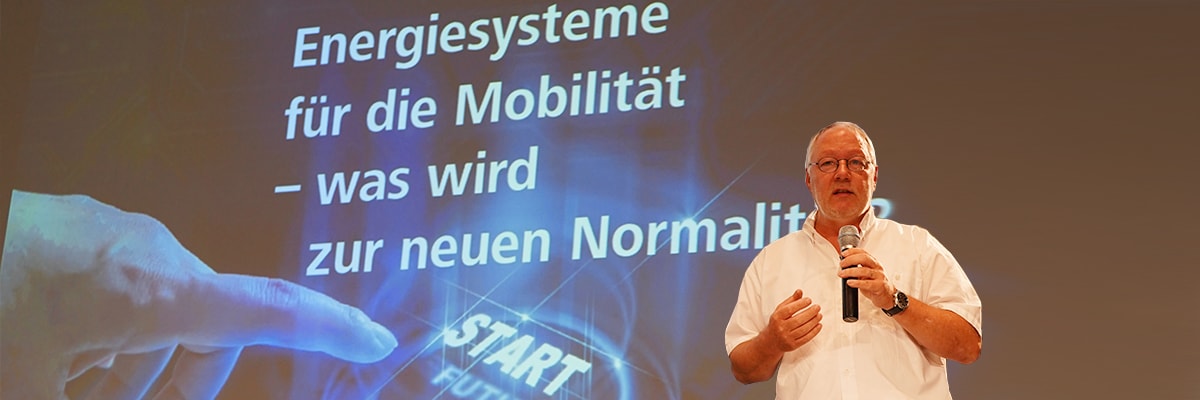
What will become the new normal?
At the conference of the Studienforum Schweiz für mobile Antriebstechnik (Swiss Study Forum for Mobile Engine Technology), various experts will show where the journey to a decarbonised world is heading. They will also draw attention to the greatest challenges on the road to achieving ambitious climate targets and explain which engine and energy sources can be used to achieve this in the first place.
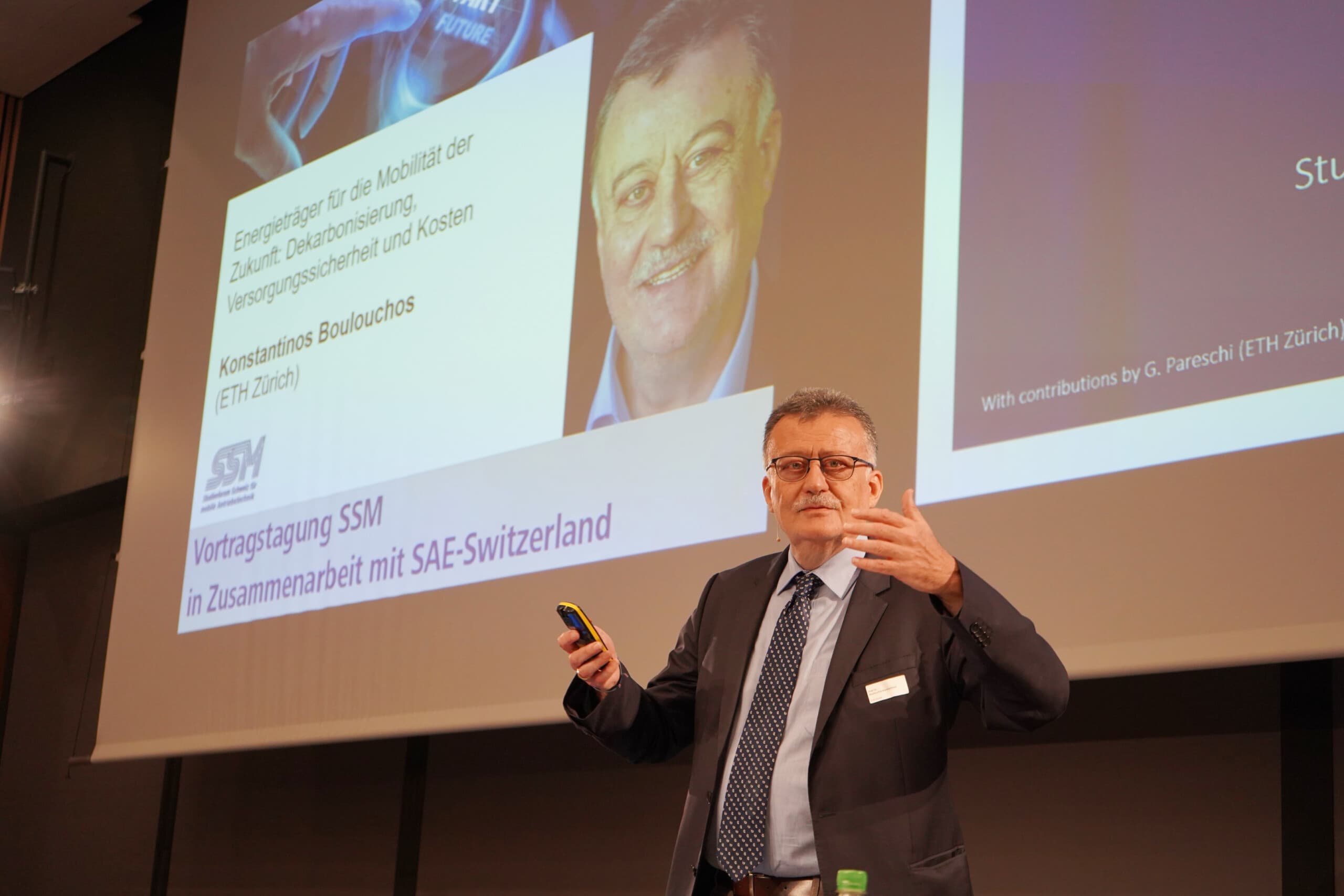 ETH professor emeritus Konstantinos Boulouchos explains details of Switzerland’s future energy needs. Source: CNG-Mobility.ch
ETH professor emeritus Konstantinos Boulouchos explains details of Switzerland’s future energy needs. Source: CNG-Mobility.ch
The experts at the conference of the Studienforum Schweiz für mobile Antriebstechnik – SSM for short – agree that the decarbonisation of the energy system is urgently needed, and the challenges for mobility in Switzerland and around the world are enormous. “In Switzerland, vehicles such as vans and buses can be supplied by domestic electricity production,” calculates ETH Professor Emeritus, Konstantinos Boulouchos. The co-author of the Federal Council’s Energy Strategy knows the details and adds: “Nevertheless, imports of 10 TWh will be needed in the 2050 winter half-year .”
He identifies long-haul transport as a key factor in climate change and sees a great need for new infrastructure and investments to get the energy revolution off the ground. According to the mobility and energy expert, this requires a technology-neutral approach and also renewable fuels. For his colleague from Empa, Christian Bach, one thing is clear: “We have to get things done in order to finally drive the transformation forward.” The current reduction in CO2 emissions is simply a coronavirus effect – that’s all. There is also little point in switching from one fossil fuel source to another. “Or to outsource the dirty industry to countries with more lax CO2 legislation and sugar-coat the whole issue,” says Bach, before adding “this is simply window dressing.”
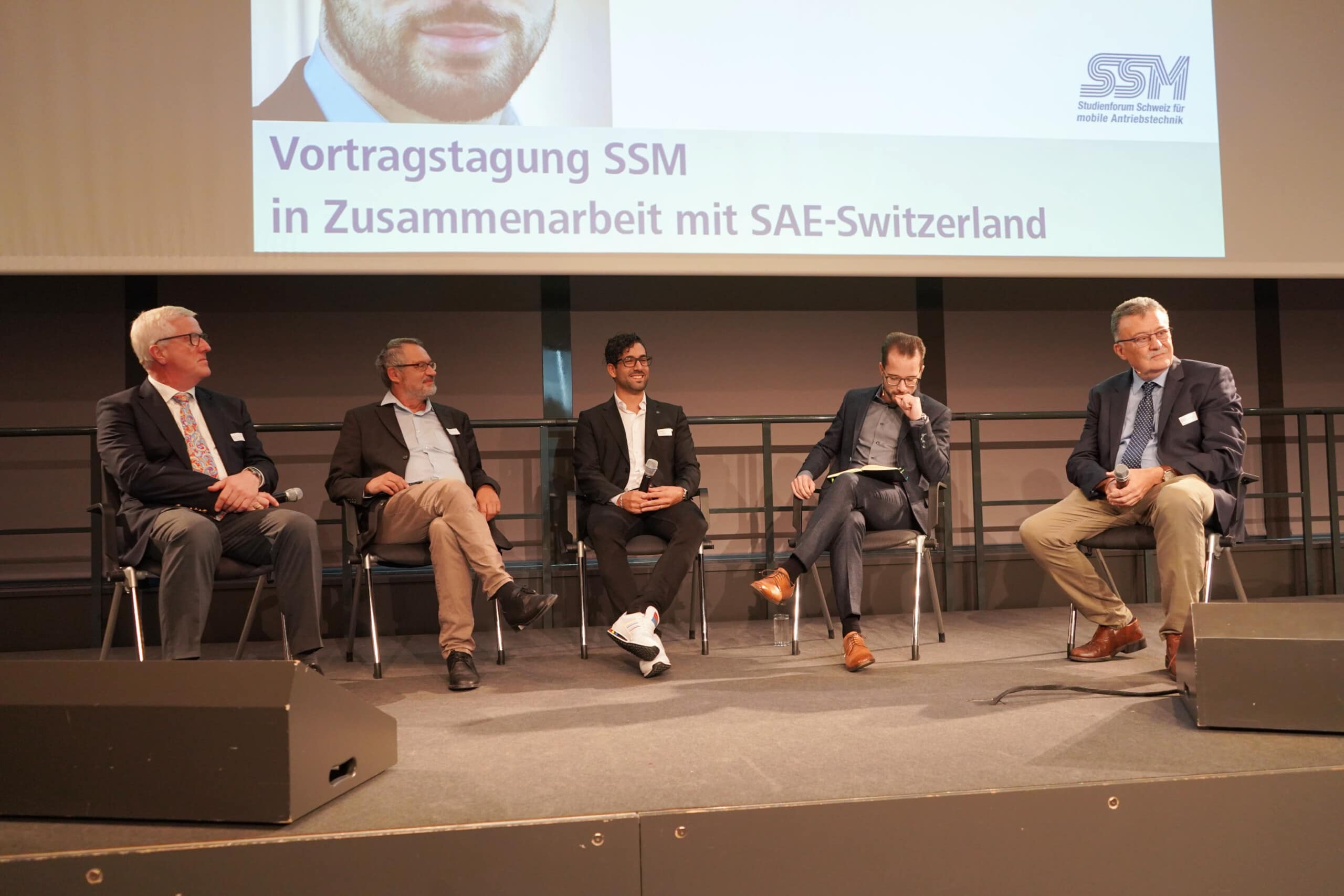 Professor Alexander Eisenkopf from Zeppelin University in Friedrichshafen, Professor Kurt Möser from the Karlsruhe Institute of Technology (KIT), Patrick Maggio from UBS Switzerland AG, moderator Fabian Bigler from Avenergy and ETH professor emeritus Konstantinos Boulouchos during the panel discussion at the SSM Lecture Conference. Source: CNG-Mobility.ch
Professor Alexander Eisenkopf from Zeppelin University in Friedrichshafen, Professor Kurt Möser from the Karlsruhe Institute of Technology (KIT), Patrick Maggio from UBS Switzerland AG, moderator Fabian Bigler from Avenergy and ETH professor emeritus Konstantinos Boulouchos during the panel discussion at the SSM Lecture Conference. Source: CNG-Mobility.ch
Professor Alexander Eisenkopf from Zeppelin University in Friedrichshafen also makes an important point regarding the new energy systems for mobility: “Technicians and engineers don’t ask the question of cost or efficiency when it comes to implementation. For them, the only thing that matters is whether it works. Economists, on the other hand, strive for cost efficiency.” And it is essential that these considerations play a role in European climate policy. The German therefore advocates emissions trading in order to achieve climate targets more efficiently. “The ambitious reduction pathways are hardly feasible without emissions trading. Otherwise, there is a risk of a spiral of intervention,” explains Eisenkopf.
The economist adds: “The transport, heating and buildings sectors, as well as agriculture, should therefore be included in European emissions trading. This is because trading enables accurate volume control of CO2 emissions at minimum costs and also leaves pricing to the market.” By contrast, political intervention, which calls for e-mobility rather than technology neutrality, leads to a massive market distortion. Moreover, the political debate on climate protection is far too often emotional and also moralising. “Many measures are more symbolic, because hardly anyone wants to economise,” says Eisenkopf. “The whole thing is not something that can be taken for granted!”
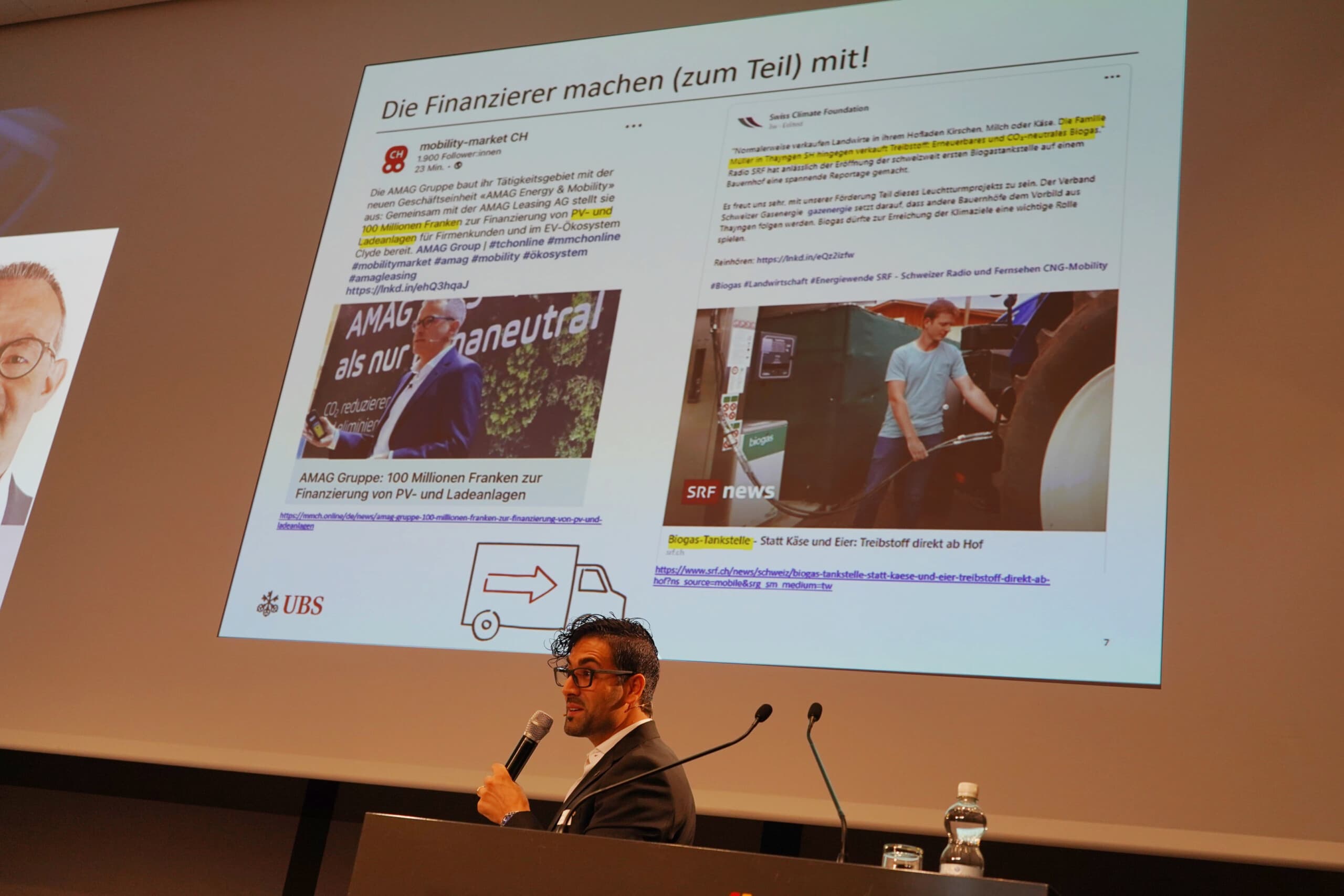 Patrick Maggio from UBS Switzerland AG explained the risk considerations a bank has to make when investing in new technologies, such as biogas plants or biogas panniers on farms. Source: CNG-Mobility.ch
Patrick Maggio from UBS Switzerland AG explained the risk considerations a bank has to make when investing in new technologies, such as biogas plants or biogas panniers on farms. Source: CNG-Mobility.ch
Konstantinos Boulouchos also underlines this: “The electrification of passenger cars and light commercial vehicles alone is a challenge, and you should note that this does not include aviation and heavy goods vehicles. We will not be able to achieve the climate transition just by cycling or looking the other way.” The ETH expert strongly advocates the inclusion of e-fuels in the strategy. “Synthetic fuels have the huge advantage that they also enable a reduction in carbon emissions in the existing fleet.” This is crucial, because even in 2050, half of the emissions would still be caused by the existing fleet. “In addition, international cooperation is needed, because effective climate protection is not possible in a fragmented world.”
Philippe Zimmermann in particular makes it clear what a concrete implementation might look like. The project manager for vehicle engine systems at Empa presents a tool developed together with the Federation of Migros Cooperatives that helps to calculate the energy requirements and CO2 emissions of a commercial vehicle fleet. Using several variables such as route and load, the different engine variants can be compared more easily and the most sustainable transport solution for each trip can thus be determined. “We adopt a well-to-wheel approach in order to assess not only the emissions during operation, but also the overall energy requirements and CO2 emissions,” explains Zimmermann. This allows a fair comparison of the different types of engine, from trucks with CNG engines and biogas in the tank to electric trucks and hydrogen trucks. “This gives us information about the vehicles that we already use in the fleet, but it goes without saying that we can also make statements that help when renewing or supplementing the fleet.” (jas, 8 September 2022)
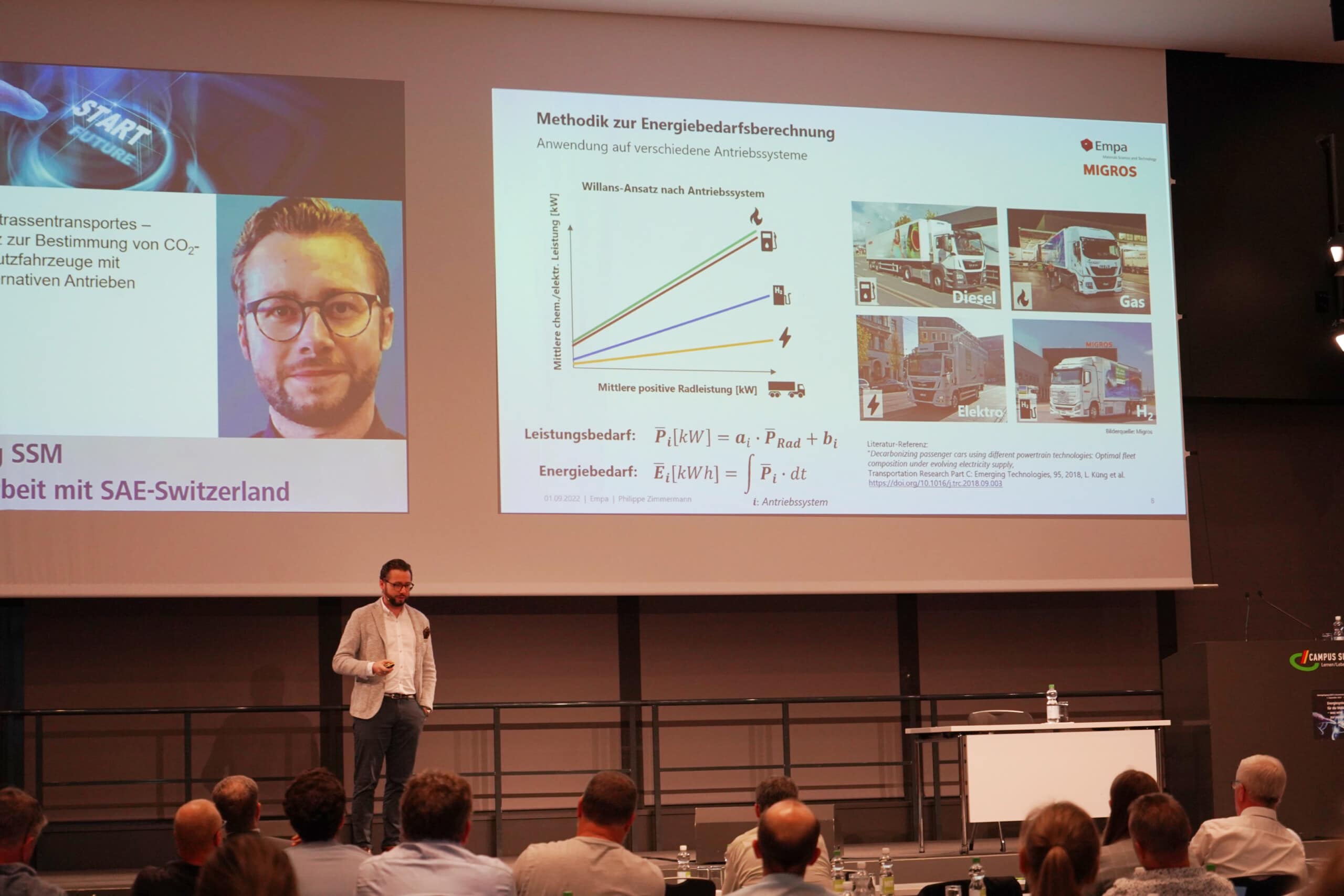 Philippe Zimmermann, Project Manager Vehicle Propulsion Systems at Empa, presented his methodology for determining CO2 emissions of heavy-duty vehicles with different types of propulsion. Source: CNG-Mobility.ch
Philippe Zimmermann, Project Manager Vehicle Propulsion Systems at Empa, presented his methodology for determining CO2 emissions of heavy-duty vehicles with different types of propulsion. Source: CNG-Mobility.ch
Documents for the SMM Lecture Conference
“Welcome speech by the President of the SSM”
Christian Bach, Empa Dübendorf
“New, old, winners, losers – thoughts about the successes and failures of technologies”
Prof. Dr. Kurt Möser, Professor by special appointment of Technology History at the Institute of History of Karlsruhe Institute of Technology (KIT) in Neckarhausen, Germany
“New energy systems for mobility – financing from the bank’s perspective”
Patrick Maggio, Regional Sales Manager UBS Capital Goods Leasing/André Köchli, Corporate Client Advisor UBS Lucerne
“Emissions trading versus regulatory law – climate policy based on the example of the transport sector”
Prof. Dr. Alexander Eisenkopf, Zeppelin University Friedrichshafen in Ravensburg, Germany
“Energy sources for the mobility of the future: decarbonisation, security of supply and costs”
Dr Konstantinos Boulouchos, em. Prof. Swiss Federal Institute of Technology ETHZ, Zurich
“Decarbonisation of road transport – a predictive model approach to determine CO2 emissions of heavy-duty vehicles with conventional and alternative engines”
Philippe Zimmermann, Research Associate, Empa Dübendorf
“Implementation of the energy strategy at the municipal utilities”
Dr. sc techn. ETH Hans-Kaspar Scherrer, CEO Eniwa AG, Buchs AG
“Charging in apartment buildings, in the neighbourhood and at work”
Robert Schürch, Head of Sales & Customer Service at WWZ Energie AG, Zug
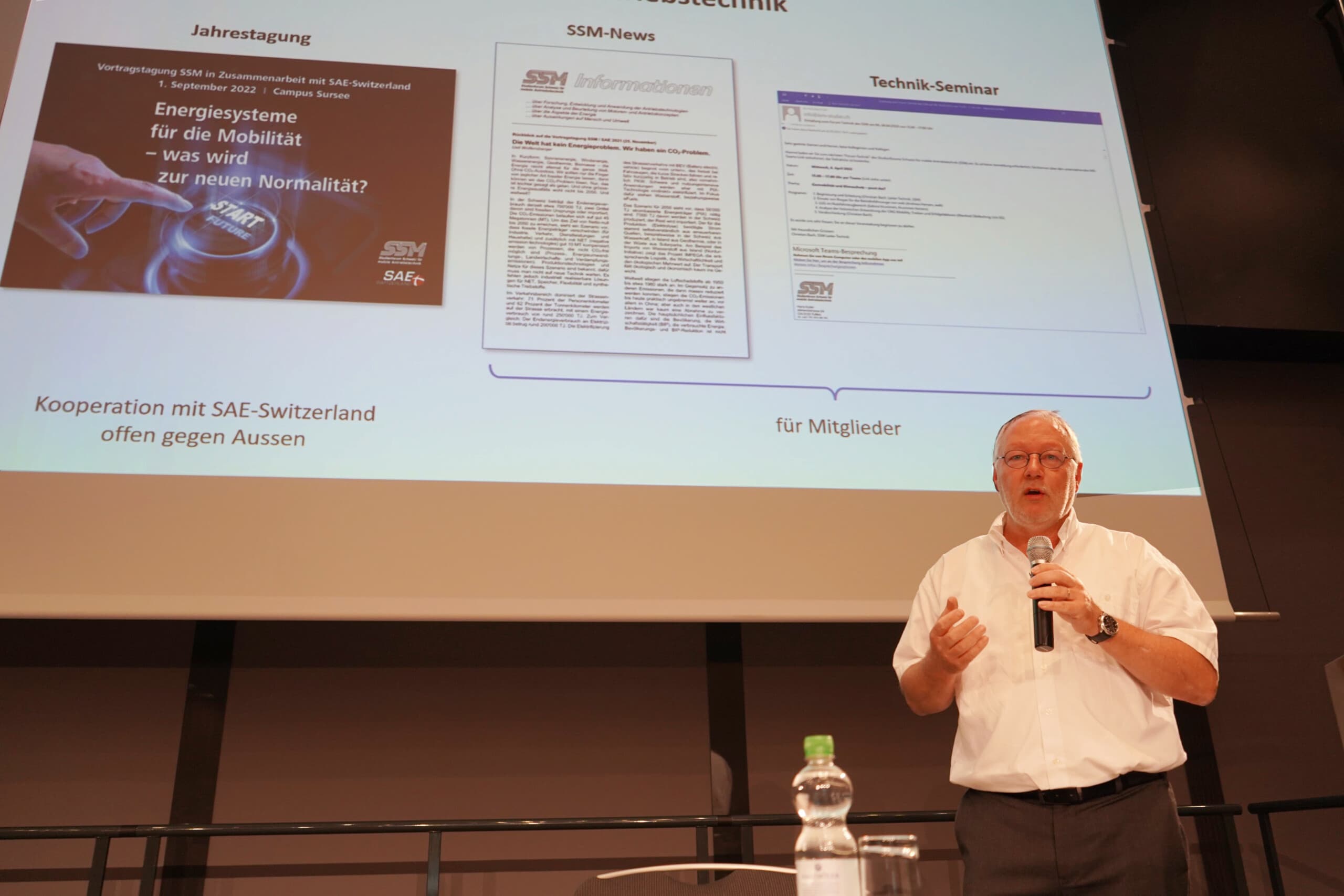
Christian Bach, propulsion expert at Empa and also president of the Swiss Study Forum for Mobile Propulsion Technology. Source: CNG-Mobility.ch
You might also be interested in
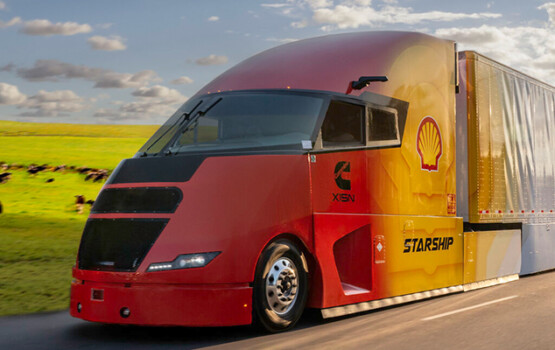
Shell Starship on record hunt
